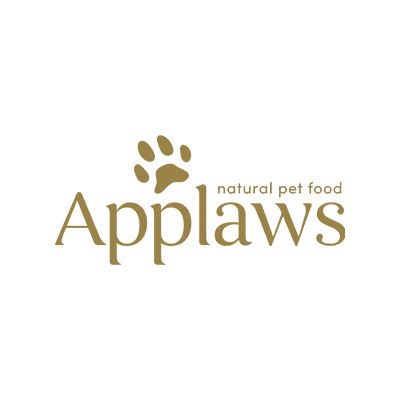Our beloved canine companions are cherished members of our families, and their well-being is a top priority. Ensuring that your furry friend has a healthy digestive system is fundamental to responsible pet ownership. Just like humans, dogs can experience a range of digestive issues that can lead to discomfort and health problems. In this comprehensive guide, we'll explore the five most prevalent digestive issues found in dogs and provide insights on how to recognize, manage, and prevent them with the help of premium quality dog food.

1. Canine Diarrhea
Canine diarrhea is a frequent digestive problem among dogs, characterized by loose, watery stools that can appear suddenly. Various factors can lead to diarrhea in dogs:
- Dietary Indiscretion: Dogs are naturally curious, and they may ingest inappropriate substances like spoiled food, garbage, or foreign objects, irritating their digestive system.
- Infections: Bacterial or viral infections, such as parvovirus or salmonella, can lead to gastrointestinal distress and diarrhea.
- Food Allergies: Some dogs may develop diarrhea due to food allergies or sensitivities to specific ingredients in their diet.
To manage diarrhea, it's crucial to ensure your dog remains hydrated. Provide access to fresh water and introduce a bland diet, such as boiled rice and lean chicken, for a day or two. If diarrhea persists for more than 24 hours or is accompanied by concerning symptoms like blood in the stool, it's advisable to consult your veterinarian and consider transitioning to the best dog food for sensitive stomachs, which often contains gentle and easily digestible ingredients.
2. Canine Vomiting
Vomiting is another prevalent digestive issue in dogs and can result from a range of causes, including:
- Gastrointestinal Infections: Viruses, bacteria, and parasites can trigger stomach upset and vomiting in dogs.
- Dietary Changes: Sudden alterations in diet or the ingestion of unfamiliar substances can lead to vomiting.
- Toxic Substances: Dogs may vomit if they ingest toxic substances such as certain plants, chemicals, or medications.
While occasional vomiting is considered normal, persistent or severe vomiting should prompt a visit to the vet. In such cases, it's advisable to withhold food and water for a few hours to allow your dog's stomach to settle. You can then gradually reintroduce a bland diet and closely monitor for any improvement or worsening of symptoms, all while considering the benefits of the best wet dog food for sensitive stomachs.
3. Constipation in Dogs
Constipation, characterized by infrequent or difficult bowel movements, is a common digestive issue in dogs. Several factors can contribute to constipation:
- Dietary Factors: A lack of dietary fiber or the ingestion of indigestible items can result in constipation.
- Dehydration: Insufficient water intake can lead to the formation of dry, hard stools that are challenging to pass.
- Underlying Medical Conditions: Certain medical conditions such as anal gland issues or intestinal obstructions can contribute to constipation.
To help alleviate constipation, ensure that your dog has access to fresh water at all times and include fiber-rich foods in their diet. If constipation persists, it's advisable to consult your veterinarian for a proper evaluation and treatment plan, potentially including dietary adjustments, such as incorporating the best dibaq dog food for constipation relief.

4. Gastrointestinal Infections
Gastrointestinal infections are a common concern for dog owners, and they can be caused by various pathogens, including:
- Bacteria: Common culprits include Salmonella, E. coli, and Campylobacter.
- Viruses: Viruses such as parvovirus and canine distemper can lead to gastrointestinal issues in dogs.
- Parasites: Worms like roundworms and hookworms can infect a dog's gastrointestinal tract.
Prevention through regular vaccination and the maintenance of good hygiene practices is crucial for reducing the risk of gastrointestinal infections. If your dog exhibits symptoms such as vomiting, diarrhea, or lethargy, it's important to consult your veterinarian promptly, considering dietary changes that may involve switching to the best dog food for sensitive stomachs to aid recovery.
5. Canine Food Allergies and Sensitivities
Food allergies and sensitivities can manifest as digestive problems in dogs, with symptoms including diarrhea, vomiting, and skin issues. Key considerations regarding food-related digestive issues include:
- Allergens: Common allergens include ingredients such as beef, chicken, wheat, and dairy.
- Sensitivities: Sensitivities differ from allergies but can also lead to digestive discomfort, even though they may not involve the immune system.
If you suspect a food allergy or sensitivity, your veterinarian can conduct tests to identify the specific trigger. Treatment usually involves a diet change to eliminate the problematic ingredient, often with the transition to the best dog food for allergies or sensitivities, which typically contains carefully selected and hypoallergenic ingredients.
Ensuring the digestive health of your canine companion is a vital aspect of responsible pet ownership. Being aware of these common digestive issues and knowing how to recognize, manage, and prevent them is crucial. With the right approach, including a balanced diet that may involve switching to premium quality dog food, you can help guarantee a happy and comfortable life for your furry friend. If you notice persistent or severe digestive problems in your dog, don't hesitate to consult your veterinarian for expert guidance and care. By being attentive and proactive, you can help keep your beloved canine's digestive system in optimal condition, supported by the best dry dog food tailored to their specific needs.

























































